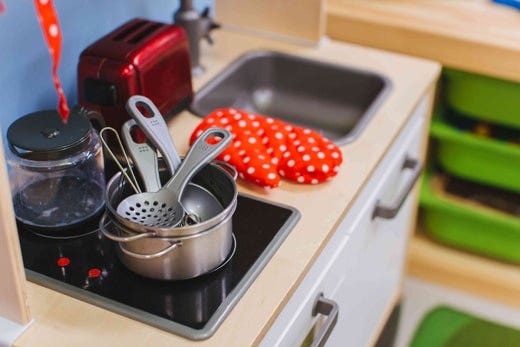
How to Keep Silverware From Rusting in the Dishwasher

Keeping your silverware pristine can be challenging, especially when stubborn rust appears after a dishwasher cycle. Rust results from a natural chemical reaction between metal, oxygen, and water, but this doesn't indicate a problem with your appliance.
While there are numerous items you should never place in your dishwasher, such as cast iron, copper, wood, and bamboo utensils, the dishwasher remains a dependable appliance for cleaning silverware, especially the cutlery.
In this article, we'll explore practical tips and techniques for preventing rust and ensuring your utensils remain spotless and durable.
So, let’s embark on a journey together to learn how to keep silverware from rusting in the dishwasher. This will help you keep it in top condition and preserve its beauty and functionality for years to come.
1. Open the dishwasher door after the cycle finishes
Moisture is the primary cause of rust, and the air inside your dishwasher is humid after a wash cycle. To prevent this moisture from settling on your dishes, open the dishwasher door once the cycle is complete and leave it slightly ajar for a while. This allows the humid air to escape, reducing the risk of rust on your metal cutlery and kitchenware.
Additionally, opening the dishwasher door and letting it air dry helps release trapped odors, ensuring a fresh-smelling dishwasher for your next load.
Check out our article about how to get rid of dishwasher smell to explore the practical solutions to tackle this common kitchen dilemma head-on.
2. Avoid washing non-dishwasher-safe kitchenware
Not all metals are dishwasher safe. Low-quality metals or metal-coated items can rust in the dishwasher. Always check the manufacturer’s instructions to determine if an item is dishwasher safe. When in doubt, hand wash these items.
3. Avoid washing already corroded items
Prevent the spread of rust between metal utensils by refraining from placing already rusty or corroded items in the dishwasher to safeguard your other metalware.
4. Remove food remains from the dishes before loading
Residual food on metal items can lead to corrosion. To prevent rust, avoid leaving soiled items in the dishwasher; wipe off food residues before loading metal items, or load them just before starting the dishwasher.
Note: Do not confuse wiping off food residue with pre-rinsing, which is time-consuming and wastes precious resources.
Modern detergents, such as Finish Quantum Ultimate All-In-One, contain both bleach and enzymes and are recommended by dishwasher manufacturers for use without pre-rinsing. To use them, scrape the larger pieces into the rubbish bin and load your dishwasher.
5. Avoid using inappropriate detergents and additives
Always use detergents, rinse aid, and dishwasher salt designed exclusively and recommended by leading dishwasher manufacturers, such as Finish.
Avoid using hand soap, bleach, vinegar, or any other chemicals, as they can compromise your dishwasher's efficiency, lead to rusting of metal components, and potentially decrease its lifespan.
6. Load the dishwasher properly
Ensure the correct loading of dishes in your dishwasher to prevent overloading or improper placement. Properly tilt dishes to avoid contact, especially between stainless steel, silver-plated, and copper items, as their interaction with hot water and detergent can lead to discoloration.
Find out how to load your dishwasher properly for optimum cleaning. From rinsing to not overloading to stacking your kitchenware in the best spot, we cover best practices.
.png?width=70&height=45&format=png&quality=50)


